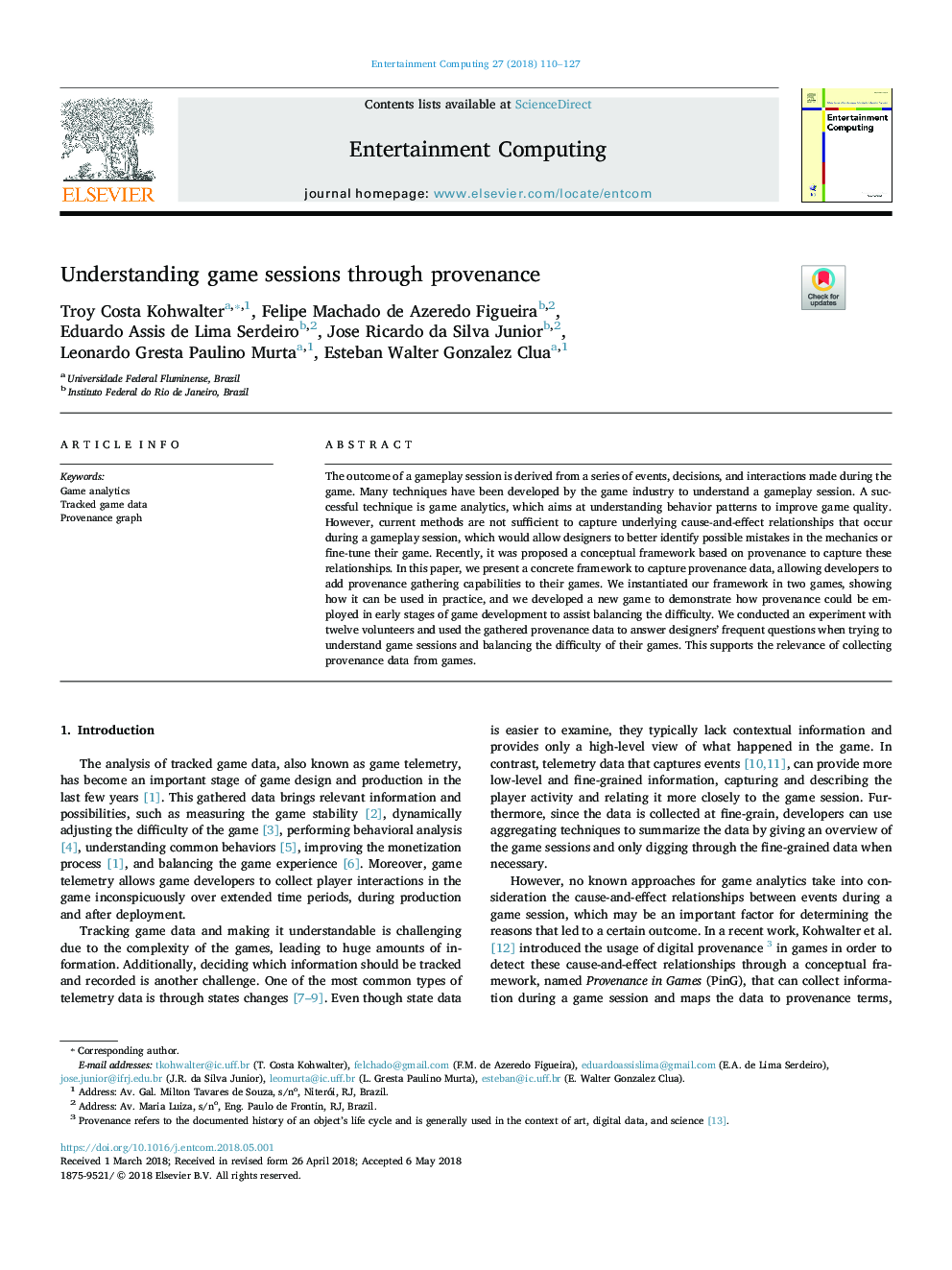| Article ID | Journal | Published Year | Pages | File Type |
|---|---|---|---|---|
| 6854580 | Entertainment Computing | 2018 | 18 Pages |
Abstract
The outcome of a gameplay session is derived from a series of events, decisions, and interactions made during the game. Many techniques have been developed by the game industry to understand a gameplay session. A successful technique is game analytics, which aims at understanding behavior patterns to improve game quality. However, current methods are not sufficient to capture underlying cause-and-effect relationships that occur during a gameplay session, which would allow designers to better identify possible mistakes in the mechanics or fine-tune their game. Recently, it was proposed a conceptual framework based on provenance to capture these relationships. In this paper, we present a concrete framework to capture provenance data, allowing developers to add provenance gathering capabilities to their games. We instantiated our framework in two games, showing how it can be used in practice, and we developed a new game to demonstrate how provenance could be employed in early stages of game development to assist balancing the difficulty. We conducted an experiment with twelve volunteers and used the gathered provenance data to answer designers' frequent questions when trying to understand game sessions and balancing the difficulty of their games. This supports the relevance of collecting provenance data from games.
Keywords
Related Topics
Physical Sciences and Engineering
Computer Science
Artificial Intelligence
Authors
Troy Costa Kohwalter, Felipe Machado de Azeredo Figueira, Eduardo Assis de Lima Serdeiro, Jose Ricardo da Silva Junior, Leonardo Gresta Paulino Murta, Esteban Walter Gonzalez Clua,
